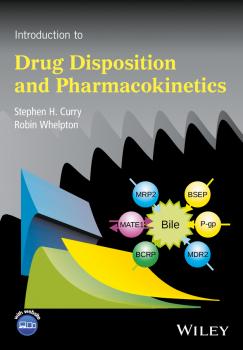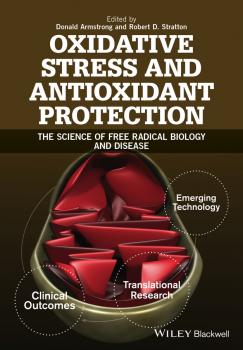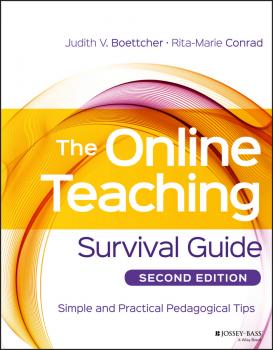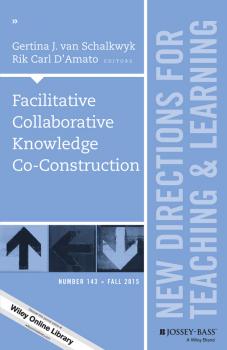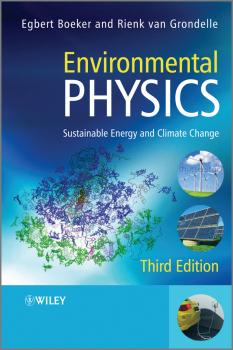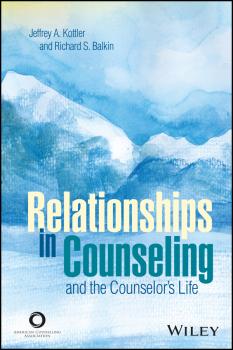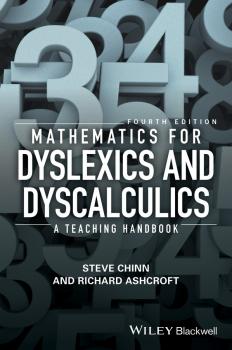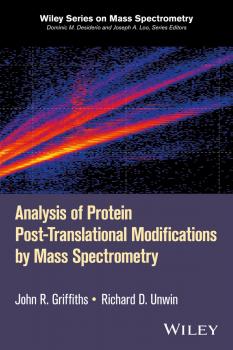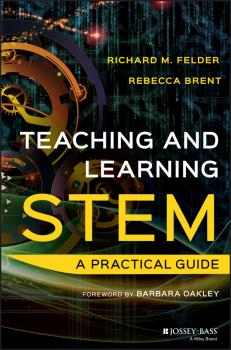Прочая образовательная литература
Различные книги в жанре Прочая образовательная литератураIntroduction to Drug Disposition and Pharmacokinetics
The application of knowledge of drug disposition, and skills in pharmacokinetics, are crucial to the development of new drugs and to a better understanding of how to achieve maximum benefit from existing ones. The book takes the reader from basic concepts to a point where those who wish to will be able to perform pharmacokinetic calculations and be ready to read more advanced texts and research papers. The book will be of benefit to students of medicine, pharmacy, pharmacology, biomedical sciences and veterinary science, including those who have elected to study the topic in more detail, such as via electives and special study modules. It will be of benefit to those involved in drug discovery and development, pharmaceutical and medicinal chemists, as well as budding toxicologists and forensic scientists who require the appropriate knowledge to interpret their findings and as an introductory text for clinical pharmacologists. Early chapters describe the basic principles of the topic while the later ones illustrate the application of those principles to modern approaches to drug development and clinical use. Full colour illustrations facilitate the learning experience and supporting material for course leaders and students can be found on the Companion Web Site
Oxidative Stress and Antioxidant Protection. The Science of Free Radical Biology and Disease
Oxidative Stress and Antioxidant Protection: The Science of Free Radical Biology and< Disease provides an overview of the basic principles of free radical formation. The text delves into free radical formation in molecular biology and its effect on subcellular damage, as well as the role of antioxidant reserves as a protective mechanism. Oxidative Stress and Antioxidant Protection begins with a historical perspective of pioneers in oxidative stress with an introductory section that explains the basic principles related to oxidative stress in biochemistry and molecular biology, demonstrating both pathways and biomarkers. This section also covers diagnostic imaging and differential diagnostics. The following section covers psychological, physiologic, pharmacologic and pathologic correlates. This section addresses inheritance, gender, nutrition, obesity, family history, behavior modification, natural herbal-botanical products, and supplementation in the treatment of disease. Clinical trials are also summarized for major medical disorders and efficacy of treatment, with particular focus on inflammation, immune response, recycling, disease progression, outcomes and interventions. Each of the chapters describes what biomarker(s) and physiological functions may be relevant to a concept of specific disease and potential alternative therapy. The chapters cover medical terminology, developmental change, effects of aging, senescence, lifespan, and wound healing, and also illustrates cross-over exposure to other fields. The final chapter covers how and when to interpret appropriate data used in entry level biostatistics and epidemiology. Authored and edited by leaders in the field, Oxidative Stress and Antioxidant Protection will be an invaluable resource for students and researchers studying cell biology, molecular biology, and biochemistry, as well professionals in various health science fields.
The Online Teaching Survival Guide. Simple and Practical Pedagogical Tips
Essential reading for online instructors, updated to cover new and emerging issues and technologies The Online Teaching Survival Guide provides a robust overview of theory-based techniques for teaching online or technology-enhanced courses. Covering all aspects of online teaching, this book reviews the latest research in cognitive processing and related learning outcomes while retaining a focus on the practical. A simple framework of instructional strategies mapped across a four-phase timeline provides a concrete starting point for both new online teachers and experienced teachers designing or revamping an online course. Essential technologies are explored in their basic and expanded forms, and traditional pedagogy serves as the foundation for tips and practices customized for online learning. The tips cover course management, social presence, community building, integration of new technologies, discussion and questioning techniques, assessment, and debriefing, along with new coverage of intensive or accelerated courses, customizing learning strategies, developing expertise, advanced course design, and assessment techniques exclusive to this new second edition. The theory and techniques of successful online teaching can be significantly different from those used face-to-face. With more and more classes being offered online, this book provides a valuable resource for taking your course to the next level. Understand the technology used in online teaching Learn specialized pedagogical tips and practices Examine new research on cognition and learning Adopt a clear framework of instructional strategies The explosion of online learning has created a demand for great online teachers. Increasingly, faculty who normally teach face-to-face are being asked to cover online courses—yet comprehensive pedagogical resources are scarce. The learning curve is huge, and faculty need a practical approach to course design and management that can be quickly and easily implemented. The Online Teaching Survival Guide provides that essential resource, with a customizable framework and deeper exploration of effective online teaching.
Facilitative Collaborative Knowledge Co-Construction. New Directions for Teaching and Learning, Number 143
Collaborative teaching and learning has been a focus of research recently, yet it can sometimes be a challenge for multicultural students in an educational setting. This second volume of a two-volume edition helps lecturers, educators, and teachers create collaborative teaching and learning experiences with multicultural adult learners in higher education. The authors of this volume provide: outlines of some of the positive relationships that can be developed among students and educators when the process of gaining knowledge is seen as a co-constructed process, approaches to relational intelligence and collaborative learning, research from neuropsychology and practical applications to teaching, and characterizations of emotional intelligence and sociocognitive skills needed in collaborative learning environments. Though focused on Asian students and their experiences, this volume includes information for all students and educators who are engaged in the collaborative search for knowledge. This is the 143rd volume of this Jossey-Bass higher education series. It offers a comprehensive range of ideas and techniques for improving college teaching based on the experience of seasoned instructors and the latest findings of educational and psychological researchers.
From the Confucian Way to Collaborative Knowledge Co-Construction. New Directions for Teaching and Learning, Number 142
Sharing and engaging in interactions and discussion as required for collaborative teaching and learning can be a foreign concept to students coming from Asia or growing up in an Asian family. As such, this first volume in a two-volume edition helps lecturers, educators, and teachers create collaborative teaching and learning experiences with multicultural adult learners in higher education. Topics include: • assessment and evaluation techniques that focus on collaborative teaching and learning with diverse students, • students’ cultural beliefs and strategies for outcomes-based collaborative teaching and learning in Asia, and • an understanding of the unique learning motivations of contemporary Asian students. This is the 142nd volume of this Jossey-Bass higher education series. It offers a comprehensive range of ideas and techniques for improving college teaching based on the experience of seasoned instructors and the latest findings of educational and psychological researchers.
Environmental Physics. Sustainable Energy and Climate Change
This thoroughly revised and updated third edition focuses on the utilization of sustainable energy and mitigating climate change, serving as an introduction to physics in the context of societal problems. A distinguishing feature of the text is the discussion of spectroscopy and spectroscopic methods as a crucial means to quantitatively analyze and monitor the condition of the environment, the factors determining climate change, and all aspects of energy conversion. This textbook will be invaluable to students in physics and related subjects, and supplementary materials are available on a companion website.
Relationships in Counseling and the Counselor's Life
In this engaging book, Jeffrey Kottler and Richard Balkin address common misconceptions about what works in counseling and offer suggestions for building constructive counseling relationships and facilitating positive counseling outcomes. Key aspects of the client–counselor relationship are supported by interesting examples and stories integrated with clinically useful research on counseling results. Part 1 reviews basic assumptions about the nature of helping relationships and examines how and why they can empower client change efforts. Part 2 describes practical approaches to encourage client trust and growth, including chapters on the cultural and environmental context of relationships; the ways in which counseling is used to treat trauma; how exchanging stories solidifies and fortifies counseling relationships; and using creative and innovative techniques to enhance relationships. Part 3 discusses the influence of relationships on counselors’ personal lives and explores how counselors are affected by their work, process disappointments and failures, and deal with personal conflicts.
Mathematics for Dyslexics and Dyscalculics. A Teaching Handbook
A seminal handbook in the field for more than 20 years, this new and updated edition of Mathematics for Dyslexicsand Dyscalculics contains the latest research and best practices for helping learners with numerical and mathematical difficulties. Provides a complete overview of theory and research in the fields of dyslexia and dyscalculia, along with detailed yet pragmatic methods to apply in the classroom Contains enhanced coverage of place value and the role of the decimal point, why fractions can challenge a developed logic for arithmetic, and the complexity of time along with new material on addressing anxiety, fear, motivation, and resilience in the classroom; and links to new resources including standardized tests and recommended reading lists Written by two mathematics teachers with 50 years of teaching experience between them, much of it in specialist settings for students with specific learning difficulties Offers effective teaching strategies for learners of all ages in a structured but accessible format
Analysis of Protein Post-Translational Modifications by Mass Spectrometry
Covers all major modifications, including phosphorylation, glycosylation, acetylation, ubiquitination, sulfonation and and glycation Discussion of the chemistry behind each modification, along with key methods and references Contributions from some of the leading researchers in the field A valuable reference source for all laboratories undertaking proteomics, mass spectrometry and post-translational modification research
Teaching and Learning STEM. A Practical Guide
Rethink traditional teaching methods to improve student learning and retention in STEM Educational research has repeatedly shown that compared to traditional teacher-centered instruction, certain learner-centered methods lead to improved learning outcomes, greater development of critical high-level skills, and increased retention in science, technology, engineering, and mathematics (STEM) disciplines. Teaching and Learning STEM presents a trove of practical research-based strategies for designing and teaching courses and assessing students' learning. The book draws on the authors' extensive backgrounds and decades of experience in STEM education and faculty development. Its engaging and well-illustrated descriptions will equip you to implement the strategies in your courses and to deal effectively with problems (including student resistance) that might occur in the implementation. The book will help you: Plan and conduct class sessions in which students are actively engaged, no matter how large the class is Make good use of technology in face-to-face, online, and hybrid courses and flipped classrooms Assess how well students are acquiring the knowledge, skills, and conceptual understanding the course is designed to teach Help students develop expert problem-solving skills and skills in communication, creative thinking, critical thinking, high-performance teamwork, and self-directed learning Meet the learning needs of STEM students with a broad diversity of attributes and backgrounds The strategies presented in Teaching and Learning STEM don't require revolutionary time-intensive changes in your teaching, but rather a gradual integration of traditional and new methods. The result will be continual improvement in your teaching and your students' learning.
